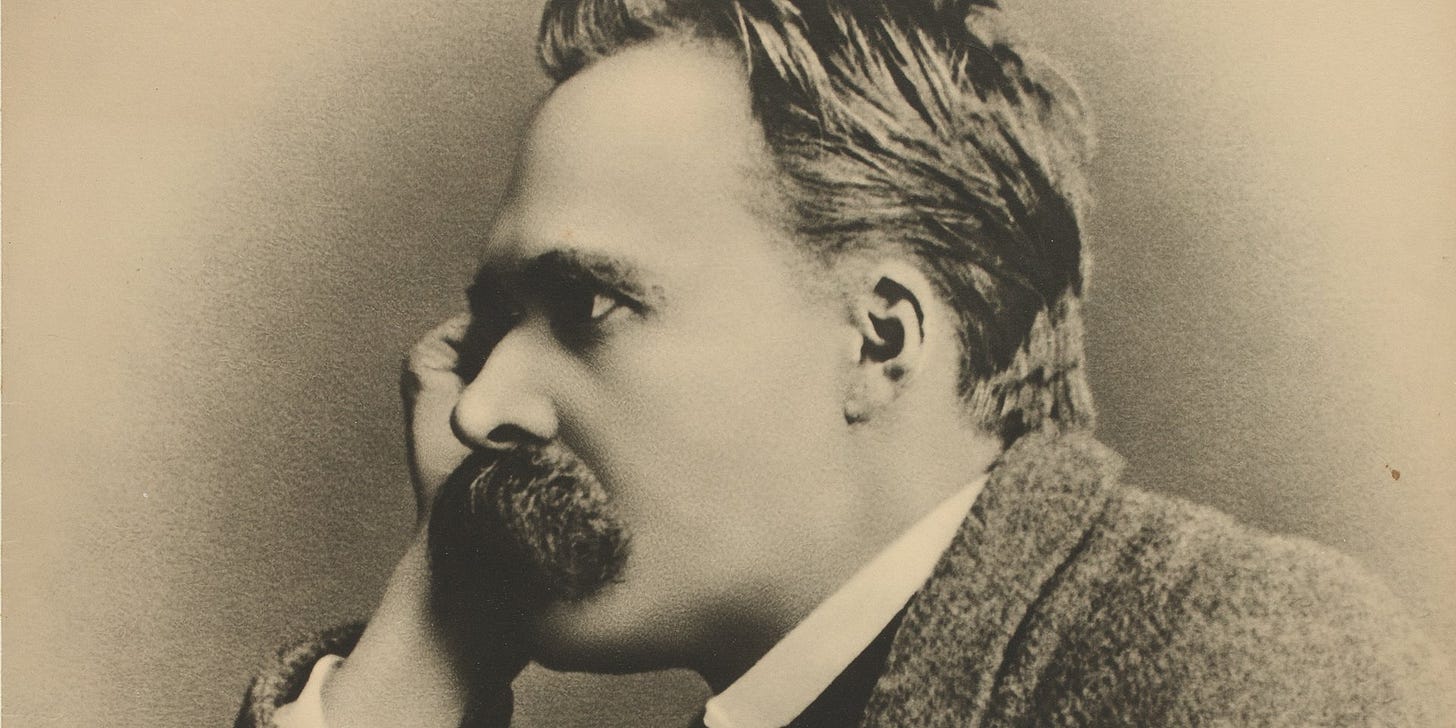The Genealogy of Morals
Vitalism session 1
My fellow Archedeliacs,
Below are my reading notes and reflections from the first session of the vitalism seminar, available to all paying subscribers. I hope they are useful. I look forward to your own impressions of the text in the comments section.
Matt
What does it mean to offer a genealogy of morals?
In the preface to The Genealogy of Morals, Nietzsche says he wants to step back and inquire about the “value of values,” and to do so historically. Specifically, to ask whether they are “in the service of life.” Those ideas of good and evil: “Have they hitherto hindered or furthered human prosperity? Are they a sign of distress, of impoverishment, of the degeneration of life? Or is there revealed in them, on the contrary, the plenitude, force, and will of life, its courage, certainty, future?” (p.17)
In his intellectual trajectory, influenced by and then reacting against Schopenhauer, Nietzsche says that “what was especially at stake was the value of the unegoistic, the instincts of pity, self-abnegation, self-sacrifice” that Schopenhauer had elevated to the point that they became for him “the basis on which he said no to life and to himself.” In this N came to see a great danger to mankind, a seduction to nothingness, a “retrospective weariness, the will turning against life, the tender and sorrowful signs of the ultimate illness." It amounted to an “ever spreading morality of pity” (p.19). He calls this a “modern effeminacy of feeling” (p.20).
So right away, we encounter the jarring thought that pity, self-sacrifice and other unegoistic moral postures can be expressions of something like nihilism, a “no” to life.
We need to head off a common (that is, both widespread and vulgar) misreading of N right away. Namely, that he is simply a debunker of morality, or that he preaches nihilism, or that he wants to simply reverse the stature of good and evil, or that he wants to glorify the unconscionable brute, or that in speaking of what is “beyond good and evil,” his intent is to liberate our inclinations, like an advertising man. No, his aim is to spy out a path that is supremely difficult. What that is, will come into view slowly.
In speaking of an “ever spreading morality of pity,” Nietzsche was perhaps the 1st to detect something that would become ferocious, omnipresent, and suffocating, named in 2001 by the French philosopher Rene Girard as the “spiritual demagoguery… that has transformed the concern for victims into a totalitarian command and permanent inquisition.”
Keep reading with a 7-day free trial
Subscribe to Archedelia to keep reading this post and get 7 days of free access to the full post archives.


